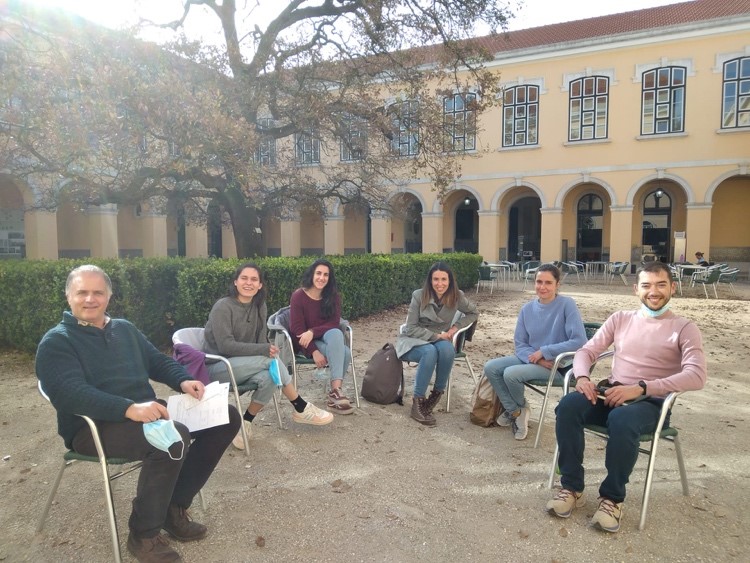Put the Philosophy back into the Doctorate of Philosophy
ESR-2 Stamatis Chrysanthopoulos
That was the title of a newspaper article that my supervisor, David Fangueiro shared with me, when I started my PhD at Instituto Superior de Agronomia (ISA). Honestly, with only few days counting as PhD candidate I realized the core message that Gundula Bosch[1] was trying to deliver; critical thinking is lacking nowadays, and academia is not an exception.
Inspired by this undeniably crude fact, David propose to start a round of weekly sessions with all PhD candidates and researchers he supervises. Do not think of a formal meeting that plenty of preparation is pre-required but more like a pleasant time where you enjoy your coffee while problematizing several topics. We call it “Café com Ciência”. Most of the times, science related topics are put on the table, however, there are sessions that we discuss how our world is evolving and what we can do as scientists to protect it. Our “team” is quite diverse since it consists of agronomists, environmental engineers as well as social science researchers. As a result, most ofthe discussions have an interdisciplinary character that enables critical thinking beyond science borders.
Since September, I have not missed a single meeting and the reason is simple; it is the highlight of my week. I feel an inner need not just to be present but actively participate during the discussions. Only then, at least for the moment, I can see the bigger picture of a problem and what could be the solutions for a more sustainable planet Earth. An additional advantage is that most of the participants we face similar obstacles during our research and therefore we can share experiences and ideas.
I believe that Gundula Bosch is absolutely right at the last statement of her article; “Science should be self-improving not just self-correcting”. And this can be achieved by simple initiatives, like “Café com Ciência” we do at ISA. I guess that the happy faces in the picture below reflect our satisfaction.

